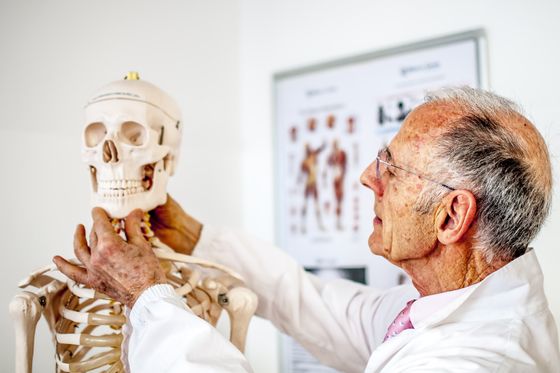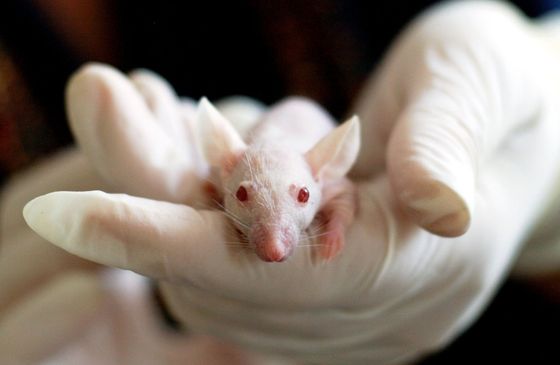Research results that it is `` bone '' that evokes the struggle instinct

By
Adrenaline and cortisol are thought to be hormones that act on the sympathetic nerve and cause a “ fight / flight response ” that is a response to fear common to animals. However, research has been announced that it is not the adrenaline or cortisol that provokes the struggle / escape reaction, but the protein “ osteocalcin ” contained in the bone.
Mediation of the Acute Stress Response by the Skeleton-ScienceDirect
https://www.sciencedirect.com/science/article/pii/S1550413119304413
Bizarre Discovery Shows Your Bones Could Be Triggering The 'Fight-or-Flight' Response
https://www.sciencealert.com/our-bones-provide-our-bodies-with-a-secret-weapon-that-saves-us-in-times-of-danger
When a critical situation is imminent, the heart rate, blood pressure, and respiratory rate increase, the energy stored in fat, glycogen, etc., dilated pupil ( mydriasis ), muscles become tense In the meantime, the body undergoes various physiological changes. During this change, it is known that the secretion amount of adrenaline and cortisol increases in the body. However, since the main function of cortisol is to participate in the production reaction of cells that transcribe specific genes, in the danger of competing for one second, “the role of cortisol” There is also an opinion that 'transcription' is useless.
Therefore, a research team at the Department of Genetic Development, Columbia University Irving Medical Center, is investigating that the hormone involved in the struggle / escape response is osteocalcin released from the bone in a critical situation.
Osteocalcin is a protein that accounts for about 25% of bones and promotes bone formation. However, on the other hand, there are still unclear points about its function, and in recent years a new theory has appeared that 'there is a function to regulate the amount of energy in the body by affecting the blood sugar level'. It was.

By
The research team conducted experiments using mice to clarify the role of osteocalcin in struggle and escape reactions. Experiments that reproduce critical situations for mice, such as “restraining movement”, “applying a slight impact to the foot several times”, and “smelling chemicals in the urine of a predator fox” As a result, the concentration of osteocalcin in the mouse blood increased by up to 150%. In particular, in experiments that smell the chemicals contained in fox urine, the increase in osteocalcin begins faster than the increase in corticosterone, which plays a role similar to human cortisol in the mouse body, and the concentration of osteocalcin is also experimental It was confirmed that it was maintained for 3 hours.
A similar experiment was conducted using mice genetically engineered to prevent secretion of stress hormones such as corticosterone and adrenaline. Then it was found that genetically engineered mice also produce a stress response. This indicates that the secretion of stress hormones is independent of the stress response.
In addition, an experiment in which osteocalcin was administered to mice confirmed an increase in heart rate and an increase in body temperature and blood glucose level, confirming that mice were restless. This is evidence that osteocalcin is involved in the struggle / escape response.

By tiburi
The team also experimented with humans to confirm that the series of reactions was not limited to mice. An experiment that gave stress that 'speech and receive cross-examination about its contents' confirmed that the concentration of osteocalcin in the subject's blood was increased.
The research team said, “The results of this study raise questions about what the true role of cortisol is,” and says that it will study its role in future research. .
Related Posts:
in Science, Posted by darkhorse_log







